Labiaplasty
Reasons Leading to Labiaplasty
Some women face functional problems such as discomfort during exercise, walking, or sexual contact. Others wish to improve the aesthetic appearance of the area for reasons of self-confidence and psychological well-being. The main reasons include reduction of the labia minora, changes caused by pregnancy and childbirth, natural aging, weight loss, and trauma.
Pelvic Floor Surgery
Vaginal and pelvic floor surgery is a subject of the subspecialty of gynecology that is called urogynecology that deals with the treatment of various pathological conditions affecting the pelvic area. The pelvic floor is a set of muscles and connective tissues that support the pelvic organs (the uterus, vagina, bladder, and rectum).
Pelvic floor disorders can cause significant problems in women's quality of life, affecting their urological, gastrointestinal, and sexual health. Modern surgery offers effective solutions for restoring normal anatomy and function.
Surgical Techniques with Vaginal Approach
Introduction to Surgical Techniques with Vaginal Approach
Vaginal surgery is one of the most advanced and safe methods in modern gynecological surgery. Techniques with vaginal approach offer significant advantages over open, laparoscopic, and robotic surgical methods, including reduced postoperative morbidity, faster recovery time, and better aesthetic appearance.
In the context of minimalist surgery, vaginal approach has been established as the preferred method for many gynecological conditions. This technique allows the surgeon to perform complex procedures through natural body openings, thus minimizing surgical tissue damage.
Hysteroscopic Surgery
What is Hysteroscopic Surgery?
Hysteroscopic surgery is one of the most advanced and safe methods of modern gynecological surgery. It is a minimally invasive surgical technique that allows doctors to examine and treat uterine problems. The procedure is performed using a thin optical instrument called a hysteroscope, which is inserted through the cervix. This advanced medical instrument has a microscopic camera that allows the surgeon to see the interior of the uterus in real time.
Laparoscopic Surgery
Introduction to Laparoscopic Surgery
Laparoscopic surgery is one of the most important developments in modern medicine, particularly in the field of gynecology and urogynecology. This minimally invasive technique has changed the way many gynecological conditions are treated, offering patients faster recovery, less pain, and better aesthetic results.
Laparoscopy, also known as "keyhole surgery," uses small incisions in the abdominal cavity for the insertion of special instruments and a thin telescope with camera (laparoscope). This approach allows surgeons to perform complex procedures with exceptional precision and minimal tissue trauma.
Robotic Surgery
Introduction to Robotic Surgery
Robotic surgery is one of the most important innovations in modern medicine, offering pioneering solutions in the field of gynecology and urogynecology. This technology has transformed the way surgeons approach complex procedures, providing great surgical precision, minimal trauma to the patient, and rapid recovery.
In Vitro Fertilization
IVF: Modern Techniques and Approaches in In Vitro Fertilization
In vitro fertilization (IVF) is one of the most advanced fields of modern medicine. Surgical interventions in reproductive medicine have revolutionized the way infertility is treated and have offered hope to millions of couples worldwide. In vitro reproduction is not limited only to the fertilization process outside the female body but includes a wide range of surgical techniques aimed at improving reproductive outcomes.
Surgery for Complicated Obstetric Conditions
Cervical Cerclage, Placenta Previa and Placenta Accreta - Surgical Specialization and Experience
Modern obstetric surgery faces significant challenges when dealing with complicated conditions that threaten the lives of mother and fetus. The three main conditions requiring surgical specialization and surgical experience are cervical insufficiency requiring cerclage, placenta previa, and placenta accreta.
These pathological conditions are major causes of maternal and perinatal morbidity and mortality worldwide. Timely diagnosis and appropriate surgical treatment are of crucial importance for successful pregnancy outcome.

Gynecologist Surgeon
Kostis Nikolopoulos
MSc, PhD, MRCOG
Obstetrician, Gynecologist Surgeon,
Urogynecologist
Dr. Kostis Nikolopoulos specializes in Urogynecology and Pelvic Floor Surgery, with many years of experience in teaching hospitals in the United Kingdom. He provides advanced diagnostic approaches and minimally invasive treatments for complex gynecological problems such as prolapse, urinary incontinence and endometriosis. The goal is to provide evidence-based and personalized medical care, based on international guidelines.

Urogynaecology
Surgical Specialization
Gynecological Diseases
Obstetrics
Fertility

Egg Freezing and In Vitro Fertilization
Egg freezing is a revolutionary technology in reproductive medicine that allows long-term preservation of female gametes at extremely low temperatures. This innovative process offers women the ability to preserve their fertility for future use ...
More













